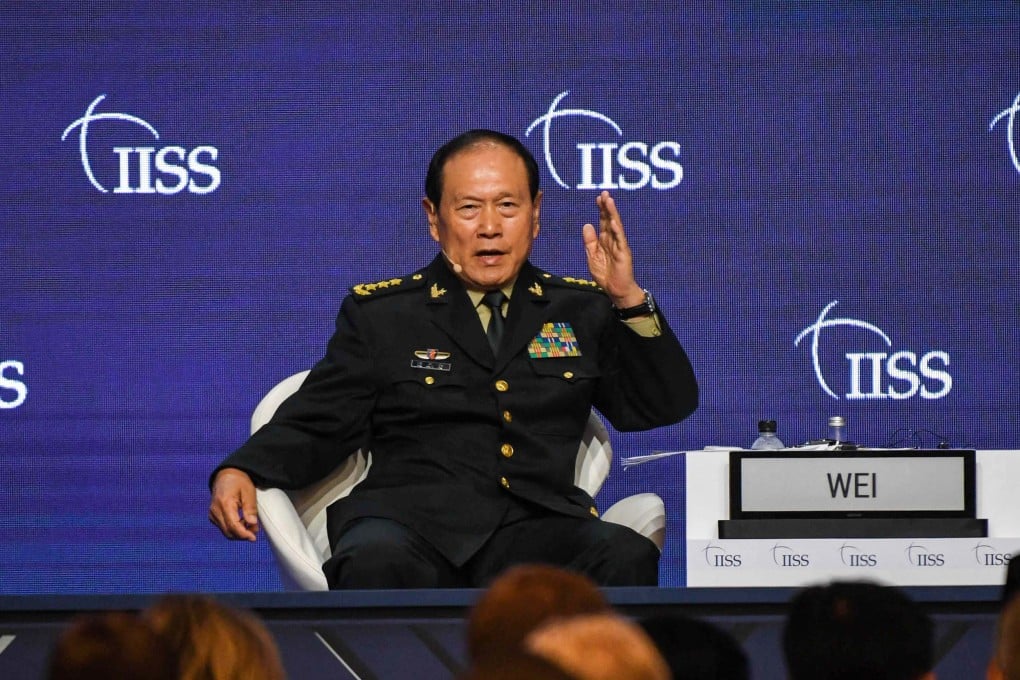Advertisement
We will fight to the very end, Chinese defence chief warns on Taiwan independence
- ‘Taiwan independence is a dead end,’ General Wei Fenghe tells Shangri-La Dialogue, as he asserts Beijing’s peaceful aims and slams US ‘threats against China’
- US trying to ‘hijack’ countries in the Indo-Pacific with exclusive multinational groups that target China, Wei declares
Reading Time:3 minutes
Why you can trust SCMP
99+

China will fight at all costs any efforts to make Taiwan independent, Defence Minister General Wei Fenghe has warned, while also saying Beijing is trying its best to “peacefully reunify” the self-ruled island with the mainland.
Setting out Beijing’s vision for regional order in a speech at the Shangri-La Dialogue defence conference on Sunday, Wei said China’s only option was to fight to the very end when independence was pursued.
“We will fight at all costs, and we will fight to the very end,” Wei said. “This is the only choice for China.”
Advertisement
Tensions across the Taiwan Strait are one of the top security concerns for the United States and its allies in the Indo-Pacific as Beijing sends warplanes near the island nearly every day. Taiwan is a key US strategic partner in the region but Beijing has never ruled out the use of force to bring the island, which it sees as a breakaway province, back into the fold.
The Shangri-La security conference in Singapore has become a platform for the US and China to present their competing visions for the Indo-Pacific.
Advertisement
Advertisement
Select Voice
Choose your listening speed
Get through articles 2x faster
1.25x
250 WPM
Slow
Average
Fast
1.25x
